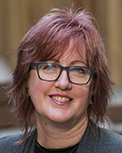Implementing Active Learning and Authentic Assessment in Your Teaching Practice
Active Learning is a key aspect of modern pedagogical practice, concerned with the idea that people understand a complex topic better when they are active participants in the learning process rather than passive recipients. Authentic Assessment refers to the idea that students should be assessed in a way that reflects the purpose and content of the knowledge and understanding being assessed, rather than through generic methods like multiple choice tests. This workshop covers some key topics under the headings of active learning and authentic assessment, with a focus on implementing these important concepts in your teaching practice and module design. The workshop is open to all, and would be particularly useful to those who are relatively new to teaching, or to reflecting on and researching teaching practice.
The workshop covers the following topics:
Active Learning:
- What is active learning?
- Knowledge and learning
- Scaffolding and Bloom's revised taxonomy diamond
- Activity: why should we do active learning?
- Cognitive, affective and psychomotor learning
- Questioning techniques
- Activity: demystification
- Teamwork
- Peer learning and evaluation
Assessment:
- Backwards by design
- Writing Learning Outcomes
- Assessment workloads
- The purpose of assessment
- Activity: assessment for learning
- Formative and summative assessment
- Assessment types
- Authentic assessment
- Assessable online discussion forums
- Rubrics and marking sheets
- Giving feedback
- Activity: creating an interactive activity or authentic assessment for your unit.
Date: 22nd November 2018
Time: 14:30 - 16:00
Venue: MB0.08, Mathematical Sciences Building
Booking Form
Feedback Form
Facilitator

Dr. Raya Darcy
Senior Educational Designer
Monash University
Raya has extensive experience in learning and teaching in higher education, and has worked in face-to-face, blended, and online unit design and development, as both an academic and an Educational Designer. She has a PhD in Communication, and a Graduate Certificate in Learning & Teaching in Higher Education. Her academic discipline is Media, Writing, Culture & Communication, specialising in media and technology, Australian studies, popular culture, and issues of race, gender and sexuality.
